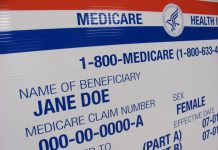
Two law professors and ?the assistant director of a vaccine program at a children’s hospital?recently wrote?a research paper that makes an interesting?proposal: if a family chooses not to vaccinate their child or children, and does not have a special medical dispensation, then they should be levied a tax. Charlotte Moser of the Children’s Hospital of Philadelphia teamed up with law school professors Robert Schwartz of the Univ. of New Mexico and UC-Hastings’ Dorit Reiss to compose?”Funding the Costs of Disease Outbreaks Cause by Non Vaccination,” which was first published last June.
In their proposal, the authors?suggest?that, because?disease outbreaks are expensive, those who willfully refuse to vaccinate could increase costs the?government has to pay, hurting taxpayers and straining already-tapped budgets. Therefore, offset some of that possible cost by taxing them, the report suggests, and even sending them bills if they get sick and infect other people.
Vaccinations against diseases such as measles, polio, and rubella are not just medical issues. There are economic concerns, as well. A vaccination is a preventive measure taken with the expectation that the recipient will not contract the disease in question. It is a proactive step taken to spare someone the pain of suffering from a disease and any complications that could arise, and also helps to ensure that other people who come into contact with the person will not catch the ailment.
The authors of the report?cast non-vaccination parents as public nuisances. They state that a tax could be?a deterrent?to non-vaccination, might spur hold-outs to get their kids vaccinated. and would be?equitable to those who do get their kids vaccinated. In addition, the reports argues that fighting these epidemics diverts resources from other medical problems, some of which may not be preventable by something as simple as vaccinations.
And some doctors and health policy officials prefer seeing money invested in educating parents about the benefits of vaccinating. For example:
1. Costs of medical care for patients
It costs money to take care of someone who becomes sick, especially if it’s?a serious disease. The costs of medicine, hospital care, necessary medical equipment, rehabilitative measures, and equipment — all these add up.
2. Costs of labor
Doctors and nurses, home health aides if needed, and other medical staff. These costs add up.
3. Costs of foregone wages
If you are felled by a disease, you cannot go to work. If your child or another member of your family gets ill,?whoever stays home to care for the patient may forfeit wages, a personal day off, or vacation time. Many people do not have vacation days or sick days, especially on the lower end of the wage spectrum. And if you are sick and are the sole owner and proprietor of a business, you may have to close the business while you are sick. If you are a consultant or independent contractor, you will lose wages. If you are a musician or actor who misses a live performance, it will be difficult to recoup your loss.
4. Costs of infecting other people
In economics there is the concept of the “Multiplier Effect.” An increase in spending has benefits beyond the initial amount spent. In a similar fashion, if you get sick and then sicken others, you spread the costs to other people, who in turn incur their own losses. So it is not just you who got sick, but others, as well. The pain is multiplied.
Will policy makers adopt the proposals offered in?the “Funding the Costs” proposal?by Moser, Reiss, and Schwartz? And wouldn’t life be a lot easier if parents just had their kids vaccinated in the first place? “An ounce of prevention is worth a pound of cure,” for sure!





